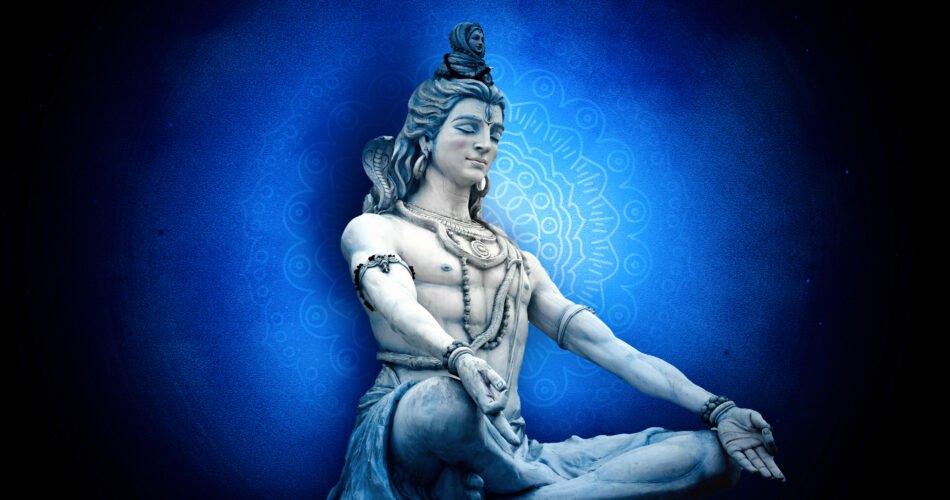Nirvana Shatakam, also known as Atma Shatakam, is a profound Sanskrit composition attributed to Adi Shankaracharya, the renowned philosopher and spiritual leader of ancient India. This timeless text encapsulates the essence of Advaita Vedanta, a philosophical tradition that emphasizes the non-dual nature of reality and the ultimate unity of the individual soul (Atman) with the universal consciousness (Brahman). In this exploration, we embark on a journey through the verses of Nirvana Shatakam, delving into its profound wisdom and uncovering the transformative power of mindfulness in realizing our true nature.
Verse 1: Mano Buddhi Ahankara Chittani Naaham The first verse of Nirvana Shatakam begins with the declaration “Mano Buddhi Ahankara Chittani Naaham,” which translates to “I am not the mind, intellect, ego, or the memory.” Here, Shankaracharya invites us to transcend the limitations of our conditioned identities and recognize the transient nature of our thoughts and emotions. Mindfulness plays a pivotal role in this process, as it enables us to observe the fluctuations of the mind without identification or attachment. By cultivating mindful awareness, we gain insight into the impermanent nature of our mental constructs and awaken to the timeless presence of our true self.
Verse 2: Na Cha Prana Sangno Na Vai Pancha Vayu In the second verse, Shankaracharya proclaims “Na Cha Prana Sangno Na Vai Pancha Vayu,” meaning “I am not the breath, nor the five vital airs.” This verse underscores the distinction between the physical body and the eternal essence that animates it. Through mindful breathing practices, we can anchor our awareness in the present moment, transcending the boundaries of the body and accessing the boundless vitality of the life force within. By observing the breath with mindful attention, we cultivate a deeper connection to the source of our being and align ourselves with the rhythm of the universe.
Verse 3: Na Vaa Sapta Dhatusu Na Vaa Pancha Koshah Continuing the inquiry, Shankaracharya asserts “Na Vaa Sapta Dhatusu Na Vaa Pancha Koshah,” which means “I am not the seven elements of the body, nor am I the five sheaths.” This verse invites us to probe beyond the physical and physiological dimensions of our existence and explore the subtler layers of our being. Through mindfulness practices such as body scanning and progressive relaxation, we can cultivate a profound sense of embodied presence, transcending identification with the material form and recognizing the inherent divinity that permeates every cell of our being.
Verse 4: Na Vaa Akasha Sthitoh Na Vaa Suryo Bhanuh In the fourth verse, Shankaracharya declares “Na Vaa Akasha Sthitoh Na Vaa Suryo Bhanuh,” indicating “I am not the space, nor the earth, fire, water, or air.” Here, he invites us to transcend the elemental constituents of the physical world and recognize the underlying unity that pervades all of creation. Through mindfulness practices that cultivate spacious awareness, we can expand our perception beyond the confines of the sensory realm and attune ourselves to the infinite expanse of consciousness. By resting in the boundless awareness that transcends all phenomena, we awaken to the eternal presence that underlies the ever-changing dance of existence.
Verse 5: Chidananda Rupah Shivoham Shivoham The penultimate verse of Nirvana Shatakam culminates in the proclamation “Chidananda Rupah Shivoham Shivoham,” signifying “I am of the nature of consciousness-bliss, I am Shiva, I am Shiva.” Here, Shankaracharya unveils the ultimate truth of our existence—the realization of our essential nature as pure consciousness and infinite bliss. Through mindfulness practices that dissolve the veils of illusion and reveal the radiant essence of our being, we come to recognize ourselves as manifestations of the divine presence that permeates the cosmos. By abiding in the profound awareness of our intrinsic divinity, we abide in the state of Nirvana—the blissful realization of our oneness with the supreme reality.
Conclusion: In the verses of Nirvana Shatakam, we discover a profound invitation to awaken to the timeless truth of our existence—the recognition of our essential nature as pure consciousness and infinite bliss. Through the transformative power of mindfulness, we embark on a journey of self-discovery and self-realization, transcending the limitations of the egoic mind and recognizing the boundless expanse of our true self. As we delve into the depths of our being with mindful awareness, we come to realize that Nirvana is not a distant destination to be attained but a state of being that is ever-present, awaiting our recognition. In the light of mindfulness, we awaken to the eternal truth that we are not merely human beings on a spiritual journey but spiritual beings immersed in the wondrous adventure of life.
Subscribe to our email newsletter to get the latest posts delivered right to your email.


Comments